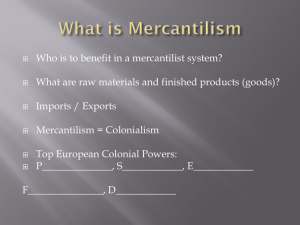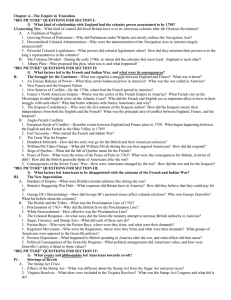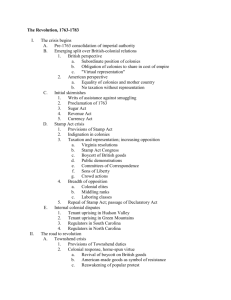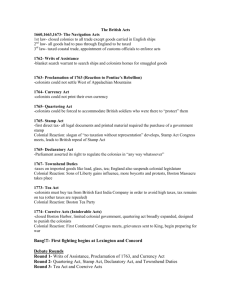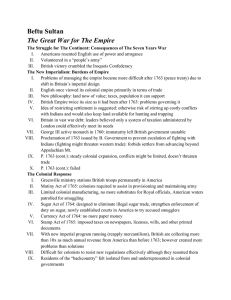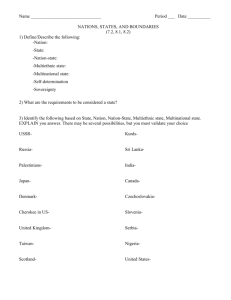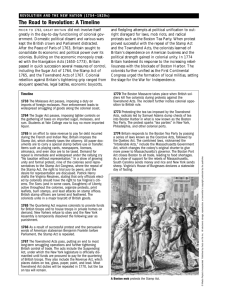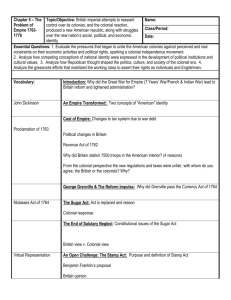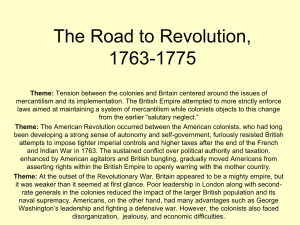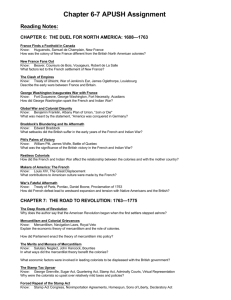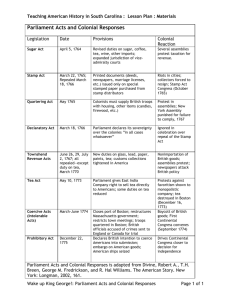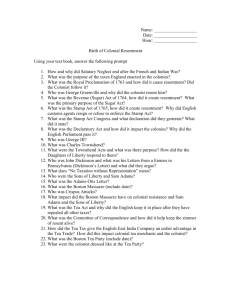Ch 4: the Empire in Transition
advertisement
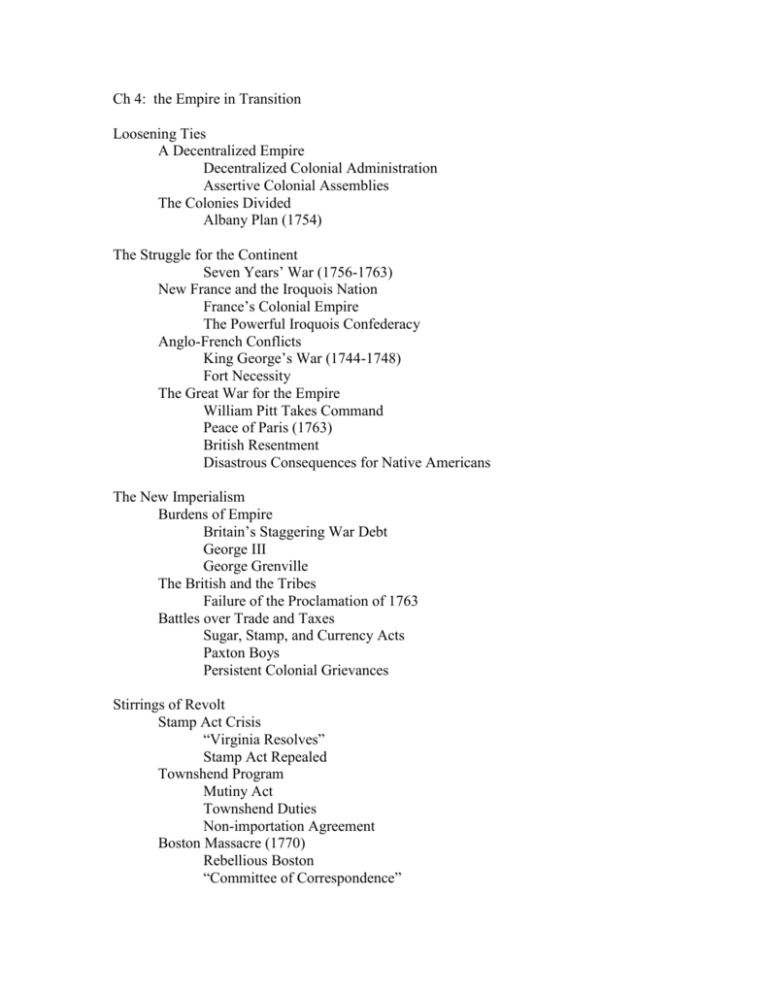
Ch 4: the Empire in Transition Loosening Ties A Decentralized Empire Decentralized Colonial Administration Assertive Colonial Assemblies The Colonies Divided Albany Plan (1754) The Struggle for the Continent Seven Years’ War (1756-1763) New France and the Iroquois Nation France’s Colonial Empire The Powerful Iroquois Confederacy Anglo-French Conflicts King George’s War (1744-1748) Fort Necessity The Great War for the Empire William Pitt Takes Command Peace of Paris (1763) British Resentment Disastrous Consequences for Native Americans The New Imperialism Burdens of Empire Britain’s Staggering War Debt George III George Grenville The British and the Tribes Failure of the Proclamation of 1763 Battles over Trade and Taxes Sugar, Stamp, and Currency Acts Paxton Boys Persistent Colonial Grievances Stirrings of Revolt Stamp Act Crisis “Virginia Resolves” Stamp Act Repealed Townshend Program Mutiny Act Townshend Duties Non-importation Agreement Boston Massacre (1770) Rebellious Boston “Committee of Correspondence” Philosophy of Revolt Sources of Revolutionary Ideology “No Taxation without Representation” “Virtual” and “Actual” Representation Sovereignty Debated Sites of Resistance Political Importance of Colonial Taverns The Tea Excitement The Tea Act Daughters of Liberty The Boston Tea Party (1773) Consequences of the Coercive Acts (1774) Cooperation and War New Sources of Authority The First Continental Congress Lexington and Concord Minutemen General Thomas Gage War for Independence begins Conclusion:
